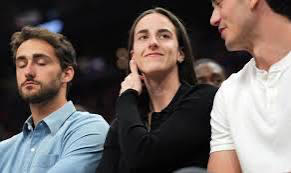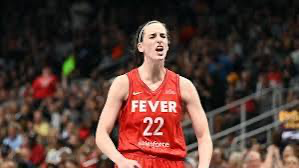
Stephen A. Smith had always been a man of fervor. His voice, a piercing cadence that echoed through living rooms, stadiums, and arenas, was once the ultimate symbol of the fight for truth in sports. But somewhere along the way, that truth got tangled in the wires of ambition, manipulation, and the deep recesses of the system that was designed to break men like him.
It wasn’t always this way. Once upon a time, Stephen A. was the passionate advocate for athletes—men and women alike—who had been cast aside by a sports industry more concerned with money than the integrity of the game. He railed against the system that turned a blind eye to the struggles of players, coaches, and fans. His arguments, though loud, were righteous, rooted in a belief that sports could be a force for something greater.
But the very system he fought so hard against, the same one he had sought to expose and dismantle, began to mold him into something else. A caricature. A voice that was no longer heard but consumed by the ratings. The debates, once noble, became about soundbites, arguments for the sake of arguments, and not for the sake of truth. He became a puppet, his strings pulled by executives who wanted a narrative, not authenticity.
The turning point came when Caitlin Clark, the star of women’s college basketball, began to dominate the headlines. A phenomenon in her own right, her dazzling skills, her leadership, and her confidence were the stuff of legends. Stephen A., the man who had once championed equality and fairness in sports, now found himself in the center of an odd paradox. The media, eager to fuel the rivalry between Clark and the stars of the NBA, pushed him into a corner.
It wasn’t Caitlin Clark who caused the tragedy. No, she was simply the catalyst. The real enemy was the machine behind the scenes—the corporate sports media that had put him in a position where he had no choice but to pick a side. The fans, the network executives, the algorithmic dictates of what would drive the most traffic, the most outrage. They wanted a spectacle, and Stephen A. was their chosen one to deliver it. If Caitlin Clark was to be compared to NBA superstars, then so be it. If it meant stoking the flames of division, fanning the rivalry, and casting aside the dignity of both women’s and men’s basketball in the process, then so be it.
He spoke, and the words left his mouth like poison. He couldn’t afford to be silent; that was the system’s unspoken rule. He attacked her, and in doing so, he attacked everything he had once believed in. He called her “overhyped,” diminished her accomplishments, and placed her in an impossible contest with players who, by their very nature, played in a different world—one far more lucrative, far more established, and far more politicized.
The backlash was immediate. Fans of Clark, basketball purists, even his own colleagues—people who knew better, who understood the game—turned against him. They didn’t see the corporate machinery behind it. They saw Stephen A., the man who had become the mouthpiece of a broken system, a man who had betrayed his own values.
But what no one understood, what Stephen A. himself had yet to fully grasp, was that this was never about Caitlin Clark. This was about the system that had forced him into the role of antagonist. It was about the machine that fed on division and controversy, that cared nothing for the players or the truth. They made Stephen A. Smith a villain, and in doing so, they drained the very passion that once defined him.
Stephen A. went to bed each night questioning whether he could ever reconcile who he had been with who he had become. He knew he wasn’t wrong in his critique of the system—it had manipulated him, exploited his voice for the sake of profit and spectacle. But as the days wore on, he realized he couldn’t shake the guilt. He could never take back the words he had spoken about Caitlin Clark, a player who deserved nothing but respect.
Caitlin Clark, for her part, never truly responded to Stephen A.’s comments. She knew, deep down, that the battle wasn’t with him—it was with the system that sought to co-opt her story. She played on, as great players do, not for the headlines, but for the love of the game.
And Stephen A.? He watched as the world moved on, the noise fading, the narrative shifting, and he was left with the haunting realization that he had become a mere tool in the hands of the very forces he had once sought to challenge. The tragedy wasn’t that Caitlin Clark had been reduced to a point of controversy. The tragedy was that Stephen A. Smith had been reduced to the same thing.
In the end, it wasn’t Caitlin Clark who destroyed him. It was the system that had manipulated him into a role he could never escape.

Leave a Reply